Koeki University (Tohoku University of Community Service and Science)
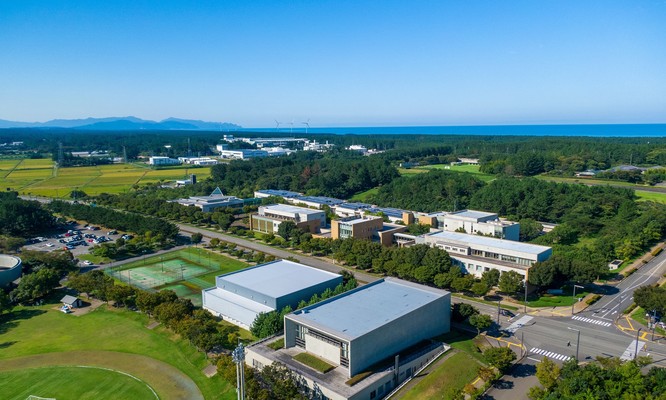
1. Introduction
General Overview & the Role of Koeki University
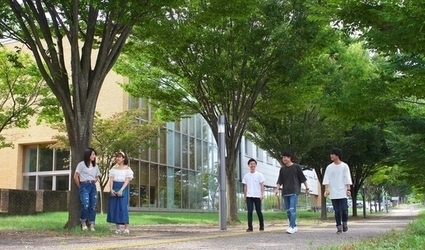
Today the Shonai area in the top west corner of the Tohoku region is brimming with a mood of creativity and enterprise. This new spirit has given rise to a new university. The twentieth century was the era that focused on money and material goods, and on capital and the rule of the market; but the twenty-first century is the era of people and mind/heart, that we call “Koeki”. This will be a world in which children will be able to live as they should, and people as humanely as they possibly can. The speed of globalization has accelerated in the twenty-first century and people around the world have confronted serious and sometimes increasingly intangible frictions between cultures, religions, and thoughts. We realize that not only whole countries and continents, but also small communities have connected to a global world. In our university, students will broaden their minds and deepen their specialist knowledge through our education in order to respond to these changes in social ethnography and to contribute to the harmonious development of cultural exchange, welfare and economics. We expect our students to be able to understand the different values and cultures, and to find a way toward a more reliable and symbiotic society.
History: KU Celebrate its 20th Anniversary in 2020
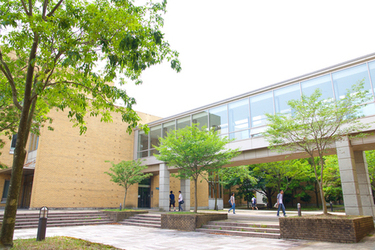
Koeki University was established in 2001 due to popular demand from the local people and local governments. The present location along the Mogami River with its silver surface and view of two magnificent mountains (Mt. Chokai and Mt. Gassan), was chosen as the site of our campus and construction began in 2000. We started, with the invaluable assistance of Keio University, with a single faculty. Currently there are six courses in the faculty – namely Business Administration, Public Policy, Community Welfare, International Liberal Arts, Tourism and Community Design, and Media and Information Technology. In 2005, the graduate school was established in nearby Tsuruoka City, which is famous for its castle, where the descendants of the ancient samurai clan chiefs are still living. We strive to contribute to society and local communities through our distinctive educational system and learning methodology with a global standpoint.
2. Education Section
Distinctive Characteristics of Our Education
Small Class Sizes
Many classes have 10-30 students, allowing teaching staff to give individual attention and detailed guidance to students.
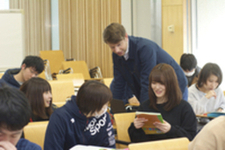
Office Hour System / Mentor System
In order to provide a higher standard of educational support, guidance is also provided outside classroom hours.
Field Work
Lectures involving field trips to organizations which are engaged in community welfare activities.
Internships
Actual experience of work at companies and local government offices gives students the opportunity to acquire practical knowledge of their targeted occupations.
Undergraduate - Faculty of Humanities and Social Sciences
The Faculty of Humanities and Social Sciences comprises 6 courses. Students choose which course to join at the end of their first year of study.
N.B. The International Liberal Arts course is planning to be a separate faculty from 2025, comprised of 2 courses: the Global Studies course and the Communications Studies course. Further information will be provided here at a later date.
--Business Administration Course
This course involves lectures and seminars for understanding corporative activities and business.
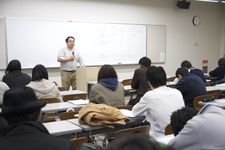
--Public Policy Course
This course involves:
•Lectures and seminars covering the basics of public policy management
•Acquiring the skills of problem-solving through case studies
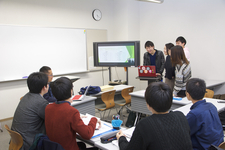
--Community Welfare Course
This course covers:
•Welfare and legal systems, techniques of counseling
•Trends and issues of social welfare today
•Problems of co-operation between the local government and people concerning social welfare
Department of Cross-Cultural Studies
We provide programs that aim to develop human resources to promote harmonious exchange between people of different cultures and work towards the creation of a new tourism industry, with sufficient knowledge of the background of other countries, history, and diverse values existing in the world. Included in this department are the following programs:
--International Liberal Arts Course
This course features:
•Learning foreign languages as a tool necessary for international relationships
•Studying different countries’ history and culture
•Examining trends in the world economy
•Study abroad programs, enabling our students to be international facilitators building bridges between countries and across cultures.
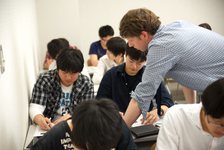
--Tourism and Community Design Course
This course involves:
•Learning the expertise of community design with perspectives such as tourism, society, and natural environment
•Studies on local tourism utilizing local resources
•Training to be leaders both in tourism and in community design
----Media and Information Technology CourseStarting from basic theory of how information can be digitalized, this program enables students to master ways of information design which help to connect people without discriminating against the socially vulnerable.
Undergraduate and Postgraduate Admissions
International students can apply for undergraduate and postgraduate programs.
--Eligibility
As a rule, the applicant must fulfill all the following requirements:
・The applicant must have, or be expected to have, completed twelve years of school education in a foreign country or have had an equivalent school education approved by the Minister of Education, Culture, Sports, Science, and Technology, Japan.
・The applicant must have passed Level 1(N1) or Level 2(N2) of the Japanese Language Proficiency Test.
・The applicant must have been granted a resident permit and be able to obtain a student visa after entering KU.
For questions regarding exceptions please contact the International Center.
--Assessment Criteria
Composition and Interview, both in Japanese
-- Test Date and Number of Applicants Accepted
Depends on the types of the examination.
Number of Staff and Students
-- Faculty Members as of 1 May, 2023
37 full-time teachers, 65 part-time lecturers
--Students as of 1 May, 2023
912 undergraduates, 13 postgraduates
3. Campus Life
Library
The library has a large storage capacity not only for books but also for audio and visual resources, and has the best collection of New Zealand related books and materials in Japan. The materials in Chido Library (Tsuruoka Campus) and in Sakata City libraries can also be borrowed free of charge using inter-library loans. In the library, some computers are available for private study purposes and there are a number of computers that are set aside for language learning.
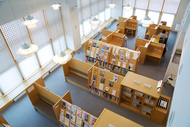
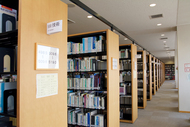
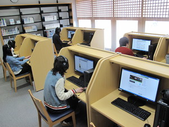
Accommodation
Twenty dormitory houses are located inside the campus. Each dormitory house has 9 private rooms and a common room. Monthly rent is about 25,000 JPY (approximately US$200).
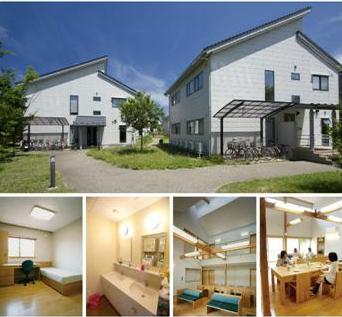
Koeki Dormitory: Views of Inside and Outside
Cafeteria
This is a modern cafeteria, equipped with Wi-Fi, with over 300 seats. It is a popular, bright and spacious place where students can eat, study and relax.
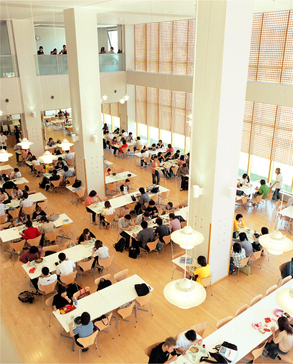
Athletic Facilities
A gymnasium, indoor sports facility (mainly for baseball), tennis courts, soccer field with a running track are available.
Extracurricular activities
As well as the university’s official sports teams - men’s baseball, ladies’ soccer, men’s and ladies’ volleyball -there is a wide range of student-run clubs such as:
• Dance circle
• A cappella singing club
• Japanese tea ceremony circle
• “Let’s Enjoy English” club
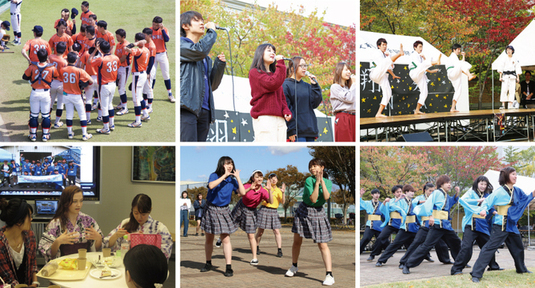
Environment
The place of study for Koeki students is not only on its campus but also all areas of Shonai. The Shonai area is surrounded by all kinds of nature. Many historical and religious buildings and natural heritage sites still remain intact, such as Mount Haguro (which has three stars in the Michelin Green Guide Japon) and Zempoji Temple in Tsuruoka and Sankyo Warehouses and the Honma Residence in Sakata. Also famous is the local cuisine with seasonal foods such as fresh seafood (Sakata is a port city), top rated rice and a wide variety of fruits and vegetables special to the area.
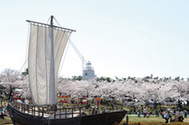
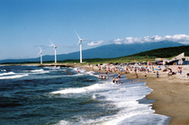
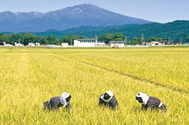
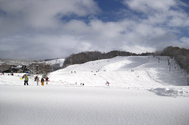
4. International Programs
Study and Exchange Programs at Koeki University for Our Students and International Students.
For International Students Wishing to Study at Koeki University.
If you are interested in experiencing Japanese culture and studying along the beautiful Japan sea coast in the rural Northwest countryside, join us on some of the many courses taught in Japanese at Koeki University.
Koeki University welcomes students from all educational, ethnic and cultural backgrounds as well as disabled or minority students, and is very flexible for time frame and personal preferences that match students’ curriculum goals and needs. We are very aware of students’ individual restrictions and are able to accommodate intensive study hours due to our system of quarterly (7-week) as well as semester (14-week) courses. Students may enroll for one year or two years that will count toward credits for their degree in their own country.
International students should have an interest in learning Japanese, in Japanese culture, ethics and lifestyle. Immersion based learning can be mixed with some classes in English. Immersion based classes should be in a subject closely connected to that the student is taking at their own home university.
There are a number of courses taught in English (including Economics, Presentation Skills, Academic Writing, Japanese Culture, and some Social Welfare courses/ Field Work) so students can pace their study of Japanese and earn credits from these as well.
We offer
• a bi-lateral exchange package
• individual needs-assessed options. For full details of home stay or resident hall options and estimated financial costs please contact us. Costs vary according to students’ requirements and needs.
You can apply directly via email to the International Center (see Contacts) with any questions and to ask for an application form.
You can apply directly via mail to the International Center (see Contacts) with any questions and to ask for an application form.
⇒Click here for Contacts page
Koeki University Students Study Abroad Options.
Below is the list of established contacts and schools we are currently sending students to and/or accepting students from. We hope to expand this list and continue to connect and make affiliations with universities from all over the world to give our students the most flexibility and choice within the design of their own degree.
• USA (Creighton University and Central Connecticut State University)
• Canada (Regina University and Victoria University (British Columbia))
• Ireland (University College Cork)
• New Zealand (The University of Waikato)
• Australia (University of Western Australia, Perth, and Victoria University, Melbourne)
(Exchanges with Chinese and Russian universities are currently suspended.)

5. Access Information
3-5-1 Iimoriyama Sakata-shi Yamagata-ken 998-8580 Japan
Telephone: +81 (0)234 41 1111(Main Number)
Fax: +81 (0)234 41 1133
By Air
Haneda International Airport----(60min)---Shonai Airport: [Bus service]---(30min)---Sakata City
⇒Click here for Shonai Airport site
By Joetsu Shinkansen
Tokyo Station---(2h)---Niigata Station: [Uetsu Mainline]---(2h)---Sakata Station
By Yamagata Shinkansen
Tokyo Station---(3h)---Shinjo Station: [Rikuu Westline]---(1h)---Sakata Station
6. Contact List
Address: 3-5-1 Iimoriyama, Sakata, Yamagata, 998-8580
Telephone: +81 (0)234 41 1111 (Japanese)
+81 (0)234 41 1287 (English, Dr.Tamai)
+81 (0)234 41 1284 (English, Edmund Fec)
+81 (0)234 41 1277 (Chinese, Dr. Wu)
URL: https://www.koeki-u.ac.jp/ (Japanese) , https://www.koeki-u.ac.jp/en (English)
Members of the International Exchange Center:
TAMAI, Masataka (Ph.D), Director of the International Exchange Center
Please communicate in English, Japanese.
(in charge of general affairs and international students from US and Canada)
FEC, Edmund (M.Sc.), Vice Director of the International Exchange Center
Please communicate in English or Japanese.
(in charge of general affairs and international students from other countries)
WU, Weifeng (Ph.D), Student advisor
Please communicate in Chinese, English or Japanese.
(in charge of international students from Eastern Asia, especially China)
MATSUTA,Ken(M.A.), Student advisor
Please communicate in English or Japanese.
(in charge of international students from US)
International Exchange Center
For enquiries concerning international and exchange students please use the inquiry form below.
7. Job Advertisement
We are not currently recruiting faculty members.